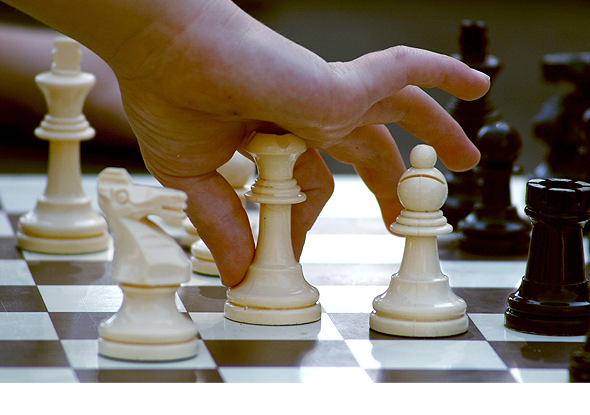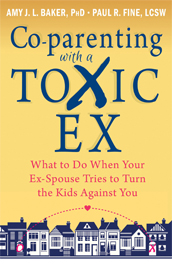Children Are Not Pawns In Divorce

- This blog contains affiliate links, which we may receive a commission for purchases. The decision is yours, whether or not you decide to buy.
Divorce is a difficult and emotional process, especially for children who are caught in the middle. Unfortunately, all too often, children become pawns in the divorce process, used as leverage or bargaining chips by one or both parents. This is a damaging and destructive approach that can have long-lasting effects on children's mental health and wellbeing.
In this blog, we'll explore the top 10 reasons why children should not be used as pawns in divorce, using examples to illustrate each point. We'll also discuss the importance of prioritizing children's needs and well-being during and after divorce.
1. Children deserve to have a relationship with both parents
Divorce can be messy and emotional, but children should not be denied a relationship with either parent. When parents use their children as pawns, they often try to limit or restrict the other parent's access to the children.
This can be harmful to children, who need the love and support of both parents. For example, if a mother refuses to let her children see their father, the children may feel like they're being punished for something that's not their fault.
2. Children should not be forced to choose sides
When parents use their children as pawns, they often try to turn the children against the other parent. This can put children in an impossible position, where they feel like they have to choose between their parents.
This can be especially damaging to children's mental health and can lead to feelings of guilt, anxiety, and depression. For example, if a father constantly bad-mouths their mother in front of the children, the children may feel like they have to take sides.
3. Children should not be used as messengers
When parents use their children as messengers, they put unnecessary pressure on the children. For example, if a mother tells her children to ask their father for more money, the children may feel uncomfortable and resentful. This can also lead to miscommunication and misunderstandings between the parents, which can further escalate the conflict.
4. Children should not be used to gather information
When parents use their children to gather information about the other parent's personal life, they invade the children's privacy and can create a sense of betrayal. For example, if a father asks his children to spy on their mother's new partner, the children may feel like they're being disloyal to their mother. This can also create a sense of mistrust between the parents, which can make co-parenting even more difficult.
5. Children should not be used as leverage
When parents use their children as leverage, they create a power dynamic that can be harmful to the children's emotional well-being.
For example, if a mother threatens to keep the children from their father unless he agrees to certain financial terms, the children may feel like they're being used as bargaining chips. This can also create resentment and anger between the parents, which can further harm the children.
6. Children should not be used to hurt the other parent
When parents use their children to hurt the other parent, they create a toxic and destructive environment for the children.
For example, if a father takes the children away on vacation without telling their mother, the mother may feel hurt and betrayed. This can create an atmosphere of distrust and hostility that can be difficult for children to navigate.
7. Children should not be used to manipulate the other parent
When parents use their children to manipulate the other parent, they create a situation where the children feel like they're being pulled in different directions
For example, if a mother tells her children to tell their father that she's not available for visitation, the children may feel like they're being asked to lie. This can create a sense of confusion and anxiety that can be harmful to children's emotional well-being.
8. Children should be allowed to express their feelings
Children are often caught in the middle of their parents' conflicts, but they should never be made to feel like their feelings don't matter. Parents should create a safe space for their children to express their feelings and concerns without fear of judgment or punishment.
For example, if a child expresses that they miss their other parent, the parent should acknowledge and validate those feelings, rather than dismissing them or getting defensive.
9. Children should not be blamed for the divorce
Divorce is a decision made by the parents, and children should never be made to feel like they're responsible for the breakup. When parents use their children as pawns, they often try to shift the blame onto the other parent or even onto the children themselves.
This can be damaging to children's self-esteem and can lead to feelings of guilt and shame. For example, if a mother blames her children for the divorce, saying that they were too difficult to deal with, the children may feel like they caused the breakup.
10. Children should be prioritized above parental conflict
No matter how difficult the divorce process may be, children should always be the top priority. Parents should work together to create a stable and nurturing environment for their children, even if that means putting their own conflicts aside.
For example, if a father is upset with the mother over child support payments, he should still make sure that the children have everything they need to thrive.
Summary:
Divorce is never easy, but it's important to remember that children are the most vulnerable and should not be used as pawns in the process. Parents should prioritize their children's well-being above their own conflicts, allowing their children to maintain a relationship with both parents, express their feelings, and feel safe and loved.
By doing so, parents can create a positive co-parenting relationship that benefits everyone involved, especially the children.
PHOTO: VENTURAARTIST
You may also like
Books
Buy now from Amazon
Podcast
If you’re looking for some straight-up, positive advice on topics that affect your daily life, then check out The Sue Atkins Parenting Show. Each week Sue bare will discuss every possible aspect of your parenting challenges, from weaning to whining, boundaries round technology to stroppy teens. You’ll get practical tips, techniques and advice that really work- and it’s all totally free.
Articles
- 5 Ways To Parent With A Narcissist
- How To Be Great Parents Through Separation And Beyond
- Divorce From A Child's Perspective
Videos
Practical advice and tips from professionals on what to do with issues and challenges around divorce from parenting to finance.
Events
Practical tips & advice designed to help people going through divorce, whether online or in person.
Useful links
Here's a selection of organistaioins from parenting to finance to help you with your divorce.
Parenting professionals
Related Posts
-

Most Common Age for Divorce in the UK and the Key Reasons Behind It
-

Reclaiming Joy After Divorce: Small Daily Rituals That Make a Big Difference
-

Navigating Social Media During Separation: Essential Dos and Don’ts in the UK
-

Is Silence Destroying Your Marriage? How Poor Communication Leads to Divorce (And What You Can Do About It)
-

When Is the Best Time to Start Family Mediation in the UK? | Guide for Separating Couples


.jpg)

.jpg)



.jpg)

